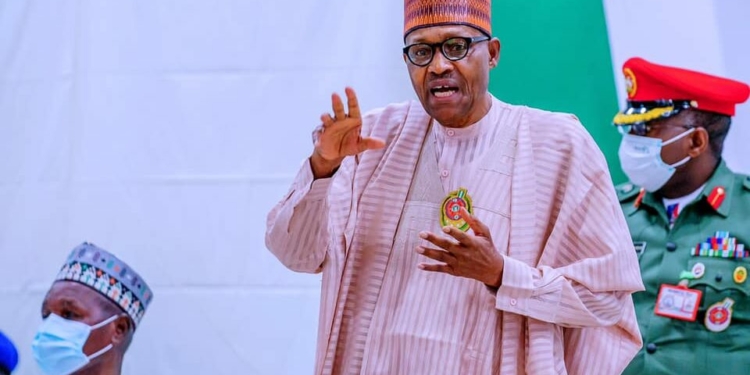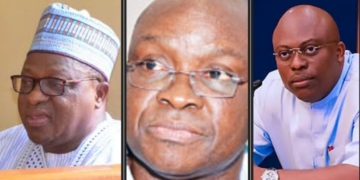The Buhari administration will officially come to an end in four days, giving room for his party statesman and former governor of Lagos state, Bola Tinubu, to take over the country’s leadership. Buhari clinched power in 2015 in a controversial election, polling 15.4 million votes versus 13.3 million for President Goodluck Jonathan and the People’s Democratic Party (PDP). At that time, his campaign promises were built majorly on the insecurity situation of the country.
With Jonathan’s administration marred by corruption scandals, and the increasing threat from Boko Haram Islamist militants in the northeast, who have killed thousands of people, the former head of state and his party, APC, declared that insecurity, poor economy, corruption, weak naira amongst other nation’s difficulties would be successfully tackled if they won. Buhari openly blasted the Goodluck Jonathan-led administration over the level of insecurity in Nigeria in several of his tweets in 2015.
One of the tweets read: “It is unacceptable to ignore or minimize the deaths of Nigerian citizens because of elections. It is heart-breaking. This must change.” Another read: “These Nigerians who have died because our government cannot protect them, they are not politicians. They deserve better. We deserve better.” And yet another read: “Let me make you this promise today: We will protect your children. We will protect your wealth. We will make this country work again.”
However, Buhari’s eight years in office have recorded an increase in debts and insecurity leading to a high debt profile and several deaths across the country orchestrated by state and non-state actors.
More Than 61,000 People Die In Buhari’s Administration
The Buhari regime recorded 61,896 deaths in 8 years. This figure starting from June 2015, was confirmed by the Nigeria Security Tracker (NST), a project of the Council on Foreign Relations Africa program, which documents and maps violence in Nigeria that is motivated by political, economic, or social grievances. However, Buhari’s 4 years recorded 26,503 deaths as against the first tenure of Goodluck Jonathan, which recorded 34,972 deaths between May 2011 – May 2015. NST noted that from m 2011 to 2023, a total of 97,676 deaths have been recorded in Nigeria.
Buhari Leaving Huge Debts Behind
The Debt Management Office (DMO), in its Fourth Quarter report of 2022, said Nigeria’s total debt hovers around N46.25 trillion. Specifically, the total domestic debt stock was N27.55 trillion, while external debt stock was N18.70 trillion (USD 41.69 billion) as of December 2022.
Meanwhile, with the recent borrowing spree by the federal government and the National Assembly’s approval of the Central Bank of Nigeria’s Ways and Means advance to the federal government, the Nation’s external and internal wealth could have surpassed N80 trillion.
At the inauguration of President Muhammadu Buhari’s administration in 2015, the country’s debt stock had continued to soar, rising from N12.6 trillion to over N80 trillion as the government prepares for exit on May 29. It is evident that in the eight years of Buhari’s administration, borrowing to fund yearly budget deficits became routine. Here, the projected budget deficits from 2015 to 2023 are estimated to be over N47.73 trillion, according to an analysis from the Debt Management Office, DMO’s data. Accordingly, Nigeria’s budget deficit rose by 370.54 percent from N2.41tn in 2016 to N11.34 trillion in 2023.
Also In August 2022, Nigeria moved one spot up in the latest top 10 International Development Association (IDA) borrowers’ list. IDA, part of the World Bank, helps the world’s poorest countries. According to the organisation’s recently released financial statements, Nigeria is the fourth most indebted country, with a $13 billion debt as of June 30, 2022.
Last year, Nigeria ranked fifth on the list with $11.7 billion in the debt stock, but the country accumulated an additional $1.3 billion in debt within a year. The development means that Nigeria’s debt has surpassed that of Vietnam, which previously occupied the fourth position on the borrowers’ list.
The IDA debt is different from Nigeria’s outstanding debt of $486 million to the International Bank for Reconstruction and Development (IBRD), another organisation under the World Bank Group.




Discussion about this post